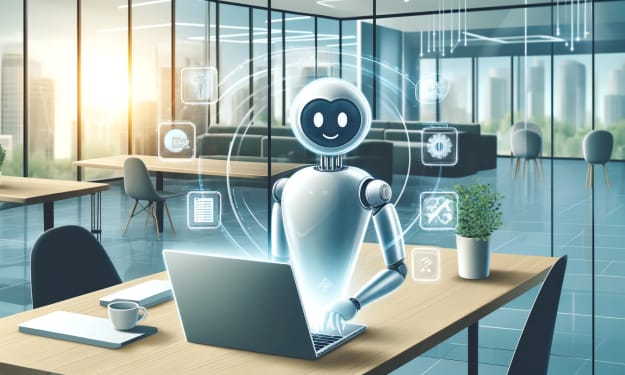Recent Technological Innovations and Their Impact on Society
From Artificial Intelligence to 5G Connectivity, We Explore the Trends Redefining Our World

Technology advances at a breakneck pace, transforming various aspects of our daily lives. From artificial intelligence to quantum computing, recent innovations are not only changing the way we interact with the world but also redefining entire industries. In this article, we explore some of the most revolutionary technologies of the moment and analyze their impact on society.
Artificial Intelligence and Machine Learning
Artificial intelligence (AI) and machine learning (ML) are at the heart of many technological innovations. These systems enable machines to learn from data, improve over time, and perform tasks that previously required human intervention.
Applications and Benefits:
- Healthcare: AI is used to diagnose diseases with greater accuracy and speed. Advanced algorithms can analyze medical images and detect anomalies that might go unnoticed by the human eye.
- Finance: Trading platforms use AI to analyze large volumes of data and make more accurate market predictions.
- Autonomous Vehicles: Driverless cars, equipped with AI systems, promise to reduce traffic accidents and improve transportation efficiency.
Challenges:
- Ethics: The use of AI raises important ethical questions, such as data privacy and algorithmic bias.
- Unemployment: Automation of tasks could lead to job losses in certain sectors.
Quantum Computing
Quantum computing represents one of the most advanced frontiers of modern technology. Unlike classical computers that use bits to process information, quantum computers use qubits, allowing them to perform extremely complex calculations at unprecedented speeds.
Potential and Applications:
- Cryptography: Quantum computers could revolutionize cryptography, creating nearly unbreakable security systems.
- Medicine: Simulating molecules at the quantum level could accelerate the development of new drugs.
- Complex Problems: From optimizing transportation routes to predicting weather patterns, quantum computers can tackle problems that are intractable for classical computers.
Challenges:
- Technological Development: Quantum technology is still in its early stages and requires significant advancements to be practical and commercially viable.
- Investment: Research and development in this field require substantial investment, both in terms of capital and human resources.
Internet of Things (IoT)
The Internet of Things (IoT) refers to the interconnection of devices through the internet, allowing them to communicate and share data with each other. From smart appliances to connected cities, IoT is changing the way we live and work.
Impact and Uses:
- Smart Homes: IoT devices can automate daily tasks, such as controlling temperature and lighting, improving comfort and energy efficiency.
- Healthcare: Wearables and other connected medical devices can monitor patients' health in real-time and send alerts in case of anomalies.
- Industry: IoT enables the monitoring and optimization of industrial processes, improving efficiency and reducing costs.
Issues and Considerations:
- Security: The connectivity of so many devices increases the risk of cyberattacks.
- Privacy: The collection and sharing of personal data raise serious privacy concerns.
5G and Connectivity
5G technology promises to revolutionize global connectivity with significantly higher data speeds and much lower latency. This technology is essential for the development and implementation of other technological innovations.
Key Benefits:
- Speed: 5G offers speeds up to 100 times faster than current 4G networks, allowing the transmission of large volumes of data almost instantly.
- Low Latency: Reduced latency improves the experience in applications that require a quick response, such as online gaming and virtual reality.
- Connection Capacity: 5G can support a greater number of connected devices simultaneously, which is crucial for the growth of IoT.
Challenges:
- Infrastructure: Implementing 5G networks requires significant infrastructure, including the installation of numerous antennas.
- Regulation and Health: There are debates about the potential effects of 5G radiation on health and regulatory implications.
Recent technological innovations are transforming society in profound and varied ways. From artificial intelligence and quantum computing to the Internet of Things and 5G connectivity, these technologies are redefining how we live, work, and interact with the world. However, they also pose significant challenges that must be addressed to maximize their benefits and minimize their risks. As we move toward an increasingly digital future, it is essential to continue exploring and adapting to these technologies to harness their full potential.
About the Creator
Laura Magdalena
Welcome! I write about a little bit of everything, but I'm passionate about exploring technology, with a special focus on AI. Dive into my insights to discover how these fields are transforming our world and shaping the future!
Enjoyed the story? Support the Creator.
Subscribe for free to receive all their stories in your feed. You could also pledge your support or give them a one-off tip, letting them know you appreciate their work.






Comments
There are no comments for this story
Be the first to respond and start the conversation.